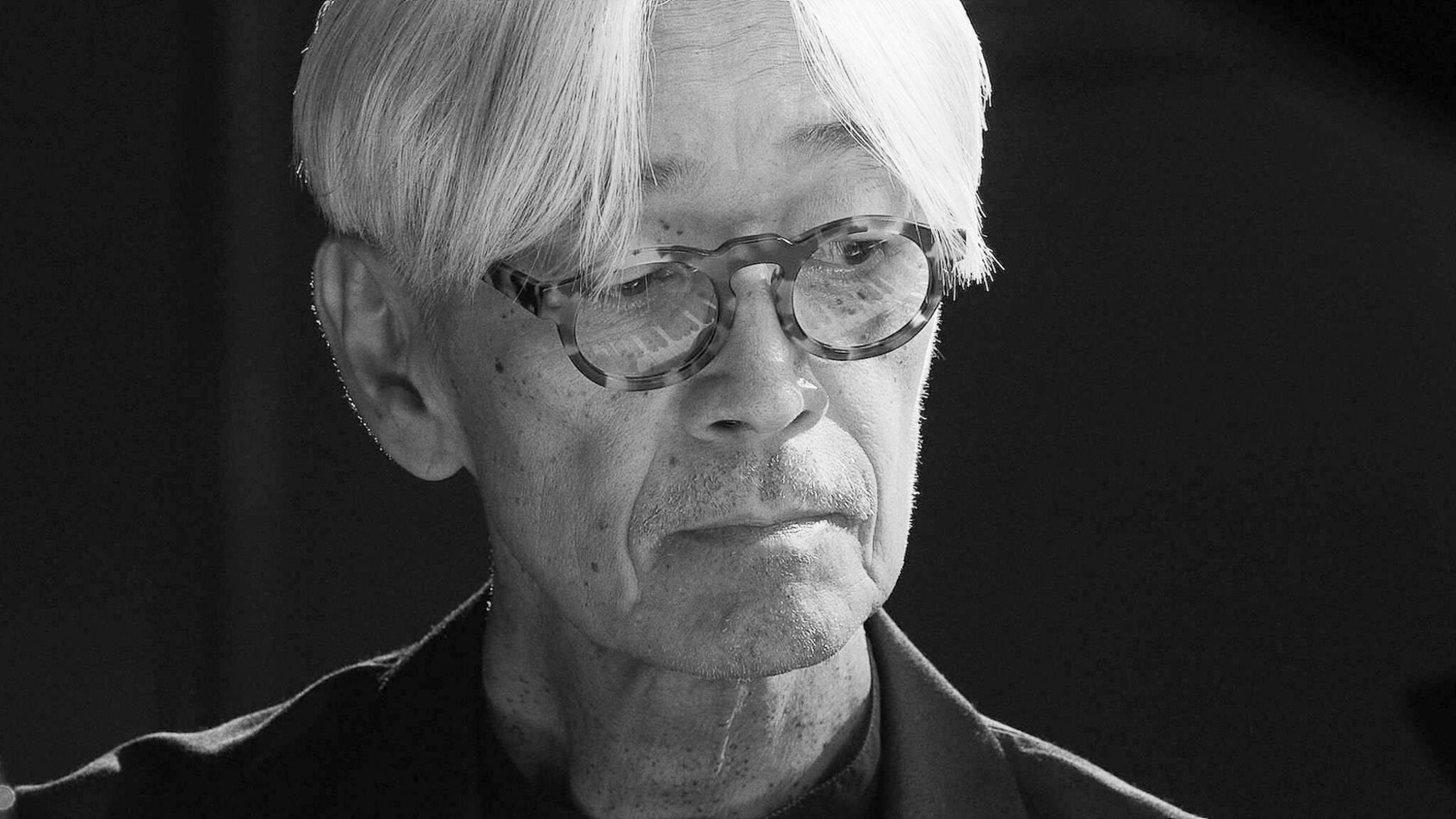Ryuichi Sakamoto | Opus is a film of one of the late Japanese composer’s very last performances, directed by his son, Neo Sora. In writing those words, I’ve just given you more context than the film does.
All 100 minutes consist of Sakamoto playing the piano alone, filmed in black-and-white. Occasionally, he seems to mutter something to someone offscreen—and at one point he gets up to “prepare” his piano with implements that mute the strings. At the end, Sakamoto has left the building, but the keys keep on playing through some trickery. No interviews. No audience. No title cards.
The subtext is obviously the composer’s death in 2023. Sakamoto knew he was dying when he made the film, and he’d known for a very long time; he’d been grappling with one form of cancer or another since 2014. By last year and the release of his final album, it was clear the end was near.
That album, 12, is a posthumous masterpiece to rival Blackstar, the swan song of Sakamoto’s Merry Christmas, Mr. Lawrence co-star David Bowie. Yet 12 doesn’t depend on the great tragic spectacle of death for its meaning; it simply shows a disciplined musician keeping on with his daily ritual for as long and as well as he could, his labored breathing an audible counterpoint to the grace of his compositions. The album is sequenced chronologically save for a brief passage of bells at the end, which is difficult not to interpret as Sakamoto’s visualization of the firmament he would soon pass through.
Both the film and the album present a troubling paradox for viewers: Knowing the context gives them a tremendous emotional weight, and yet the compositions are so ambient it would be easy to simply listen to them as background noise. Melancholy, yes, but not necessarily moving. Sakamoto’s playing becomes marginally more vigorous as the show goes on, but the music during the first half-hour is so spectral that viewers could be forgiven for pegging Opus as a “nonvisual experience” to excuse their own drooping eyes.
Someone stumbling upon the film unaware might see it as little more than a portrait of an elegant man playing enjoyable piano music, akin to one of those Yule log videos that crackle on the TV at Christmas—then, upon discovering the truth, step back and feel tremendously dirty for characterizing one of the artist’s final statements in such a vulgar way. But I think Sakamoto would be disappointed if viewers let context get in the way of what he’s actually doing: playing ambient music, delicate miniatures suggestive of Satie and Chopin, performed so deliberately that an attentive viewer might just pick up a little piano from watching this film.
The only suggestion that this man might be in ill health is the sound of his breathing, which is hard to hear unless you crank the volume. Sora didn’t have much to work with over these 100 minutes, but his familiarity with his father’s physical body gives the film a certain tactility.
Sakamoto has always been rail-thin, with an inquisitive face and a plume of parted white hair that hangs low over his face when he plays. The camera and lighting make note of the fine layer of fuzz on his chin and neck; his hands are richly veined, his skin intermittently freckled.
The composer is in full command here, playing pieces he knows well. Were he not dying, the film would feel a lot smaller than it does, a snapshot of an artist in his element. The best way to honor Sakamoto is not to marvel at this film’s memento mori but to throw oneself into his work.
What a career he had, from the subversive synth pop of Yellow Magic Orchestra in the ‘70s and ‘80s to scores for films like The Last Emperor and The Revenant to his 21st century rebirth as a prolific improviser in the experimental world. If you find yourself nodding off during Opus, don’t feel guilty—just find a copy of Thousand Knives of Ryuichi Sakamoto, go forward, and be astonished by the multitudes contained within this man.
SEE IT: Ryuichi Sakamoto | Opus, not rated, plays at Cinema 21, 616 NW 21st Ave., 503-223-4515, cinema21.com. 1:30 pm April 6-7. $8-$9.

